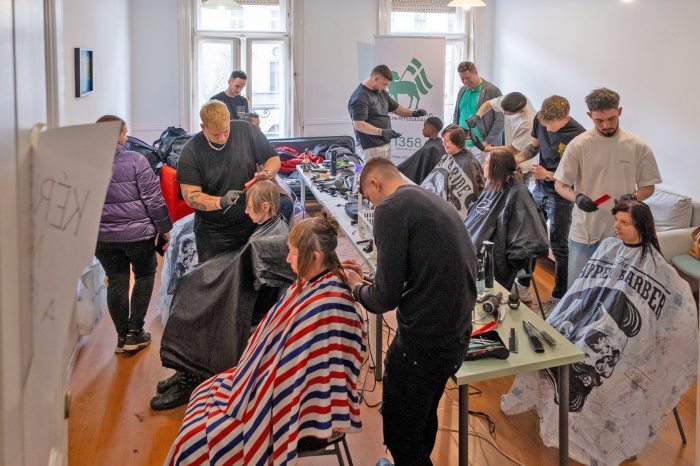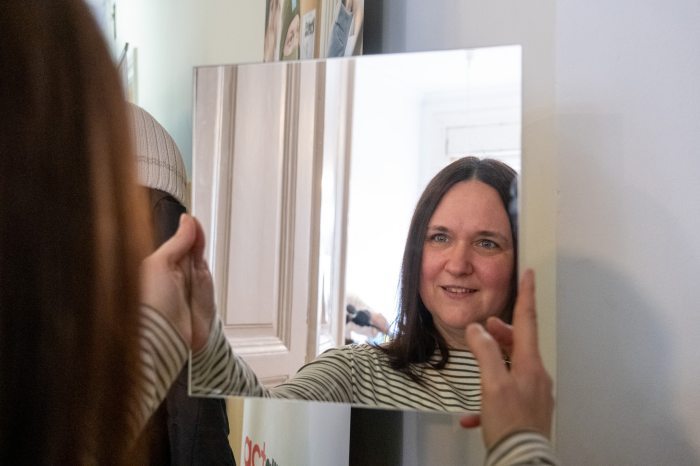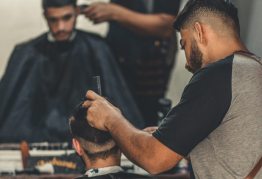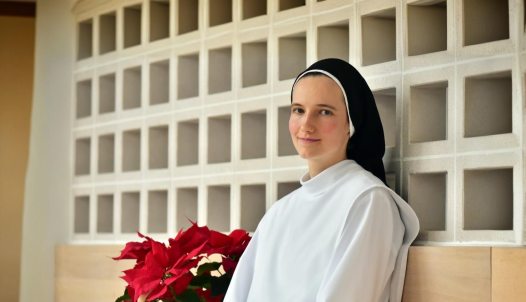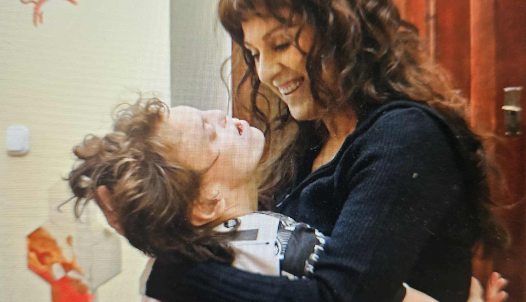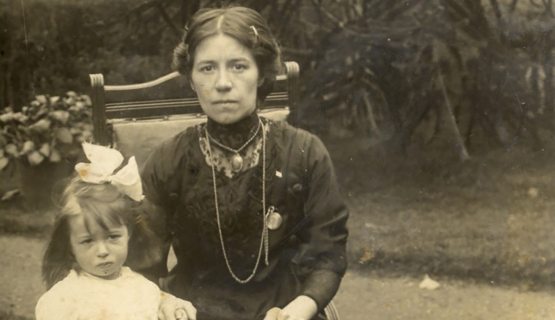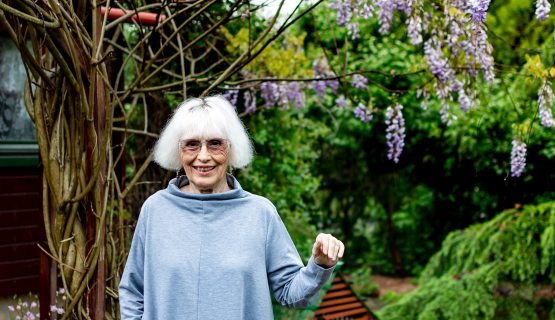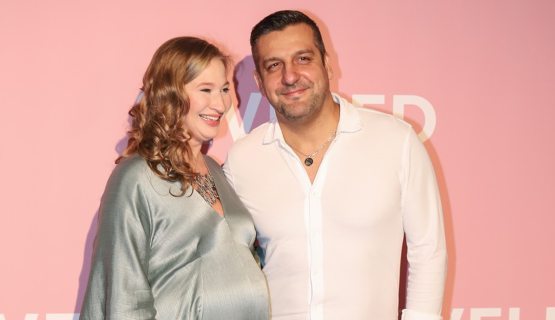”Sometimes you want to look pretty, I’m happy now” – Volunteer hairdressers make new hairdos for Ukrainian refugees
We received an invitation to a special event: the Hungarian Reformed Church Aid turned its office in Erzsébetváros, Budapest into a hairdressing salon for one morning. The clients were no ordinary people: the office was filled with refugees from Ukraine who could not afford to go to a hairdresser. All of them were happy to see their new hairdos, even though they had all been through terrible things in recent years.
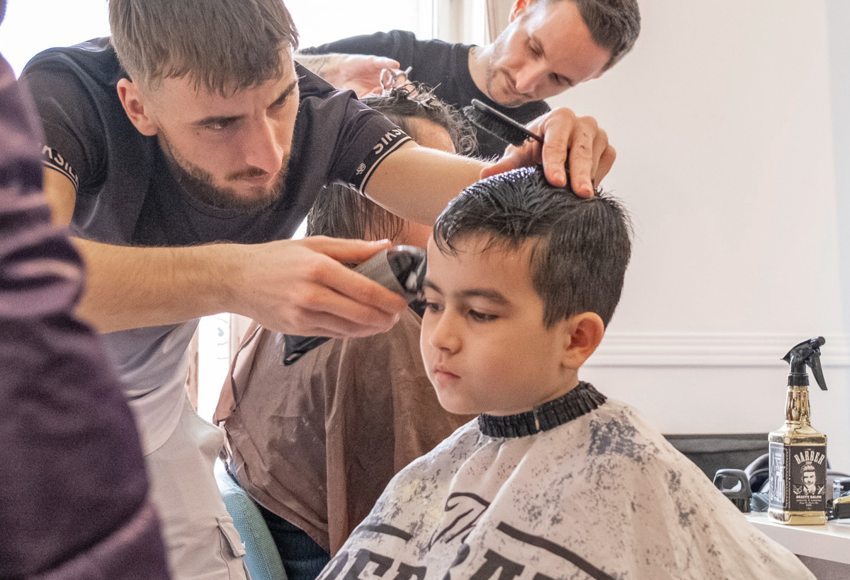
If only it were over!
"I can't wait to have my hair cut" – says Ljuba Prihodchenko excitedly at the Hungarian Reformed Church Aid's Refugee Mission Office in Budapest, District VII. It will be two years in April since the 58-year-old woman fled Dnipro, her son asked her to go west, wanting to keep her mother safe. But her son stayed at home. He has not been drafted into the army because of a skin condition, but a new law now allows him to be mobilized. They talk on the phone every day, rockets are often fired into the city, and after the attacks, Lyuba always calls his son to make sure he is OK.
The 35-year-old man lives on the 9th floor, and if the air-raid sirens go off, he has to rush down to the basement, because it is forbidden to use the elevator when the air-raid sirens howl.
Lyuba Prihodchenko is in a difficult financial situation, the money she had saved up and brought with her has long since run out. She receives some support from the Hungarian state but also tries to survive with the help of various charities and foundations. She complains that she can't find a job, having worked as a clerk at the local court in her home country, and in Hungary, she can't use the experience she gained there, she doesn't speak the language and she can't do hard physical labour due to her heart condition.
She is grateful to the Hungarian Reformed Church Aid because she can rely on them in many areas of her life, she can learn Hungarian, she has been able to see a dentist with their help, they have provided her with medicine, and now she can fix her hair with their help. "These opportunities are good, but it would be even better if the war would finally end!" - says Lyuba Prihodchenko longingly.
After a while, the looks do matter
Márton Juhász, the executive director of the Hungarian Reformed Church Aid, says that the idea for the first hairstyle service came from his relative, András Kristály, who wanted to give something extra to the refugees living in the country, in addition to the "traditional" volunteer work.
When people first arrived in Hungary from Ukraine, they were not the least bit concerned about how their hair looked, but now the situation has changed a lot, with a lot of them going to work and school, where looks matter.
He says that before the hairdressers' offer, many civil professionals had already supported people fleeing Ukraine. Interpreters, doctors, and nurses have helped from the first days right at border crossings, and then at train stations, but the refugees are also supported by volunteers in the long term, for example by teachers who tutor Ukrainian children who go to school to catch up. "To the glory of God, to the joy of the people, the country is helping," the leader concludes.
András Kristály, the barber of the Cuts Salon, tells me that this is the first time the team from Vác has volunteered, although they had already decided to do so because they wanted to help those in need. "We would have been happy to support anyone, but the refugees are perhaps even more in need of all the help they can get. These families have gone through a lot of hardships in recent years, they had much bigger problems to worry about than how they looked, and many of them would not have been able to afford hairdressing salons anyway," says András Kristály, explaining the circumstances of the voluntary donation.
Like a dandelion
Edit Kiss, the interpreter is constantly passing on the wishes of the clients to the young hairdressing team. Every single member of the salon is here, and all eight of them immediately said yes when the idea of a charity haircut was raised. Ákos Debreczeni reveals that although he is originally a female-male hairdresser, he has been cutting only men's hair for some time. "You have to be able to handle hair of both sexes, now I can brush my skills up a bit," he says between cuts.
Rising from the chair, 84-year-old Zinajda Holina, from Kyiv, looks in the mirror and says, in short: perfect.
"I've been a mess, so I'm really happy that I got a nice haircut for spring. Now it looks like a gorgeous dandelion," she says enthusiastically.
The retired lady, who has been living in Hungary for almost two years now, set off after the outbreak of the war because they were constantly confronted with the bombing of the city from their window and lived in constant terror. They dared not stay in the Ukrainian capital any longer. In Budapest, she lives in a tiny sub-let in a basement, which is all she can afford on her Ukrainian pension, but she receives a lot of support from the Church Aid. Like Lyuba Prihodchenko, she is learning Hungarian, which she demonstrates by saying "viszontlátásra" (goodbye).
Happiness in the mirror
Meanwhile, 37-year-old Tatiana's hair is done. We move to another room, where she tells us that they fled a small settlement near Luhansk in April 2022. Her third child was eight months old at the time, and they could no longer stay in the village, which was without water, gas, and electricity. They headed west, holed up for a while near the Moldovan border, and then, as the front moved west, they kept moving. They went first to Moldova and then to Romania, from where they arrived in Hungary on what she calls a "refugee train".
They had one goal: to get as far away from the war as possible.
However, her parents are stuck at home in Russian-annexed territory, with no internet service, and sometimes it takes several months before they can speak on the phone. Her husband has managed to get a job as a bus driver for a company, and the five of them live on his salary, scarcely. They have lived in several free shelters and have now managed to rent a flat. Tatyana is very grateful to the Hungarian Reformed Church Aid for all their support and for giving her the opportunity to get a haircut. "I imagined my hair exactly like this, I really like it. I used to cut it myself, so compared to that it's a big change," she smiles. - Sometimes you want to look pretty, to be a little happy. I'm happy now," she adds as she leaves.
Helping hundreds of thousands
Márton Juhász, the executive director of the NGO, tells us that since the outbreak of the war, 1.2 million people have fled from Ukraine to Hungary, of whom more than 335,000 refugees have been helped in some way by the staff and volunteers of the Hungarian Reformed Church Aid. Almost 190,000 people were provided with information; food and drink were provided to 131,000 people and hygiene supplies to more than 51,000. Almost 5,000 people received medical care and 4,600 people received pastoral care. Accommodation was provided to 19,000 refugees. In the first few days, the main needs were food, water, medicines, and pastoral care.
"For a year, the refugees did not want to hear about integration, hoping that the conflict would be resolved in a few months and they could go home ", says Márton Juhász, sharing the experience of the organization.
But after a while, they realized they had to settle in for the long haul.
It was, therefore, necessary to organize school placement for the children, to teach Hungarian as a foreign language, and to provide for special educational needs: development, tutoring, and preparation for citizenship exams.
They had to help them find work and housing. The latter is still being provided to 35 people thanks to the Church Aid. In addition, the Hungarian Reformed Church Aid organizes community and cultural events on different national or Christian holidays, runs clubs and groups, and organizes prayer meetings. In health care support, they provide medicines, and medical equipment for them. To this day, the organization's staff are working 24/7 to help refugees at the border crossing in Záhony, where 210-420 people still arrive every day to escape the war.
